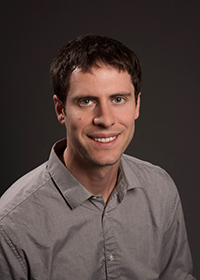
Dov Gordon, an assistant professor in the Department of Computer Science, recently won a CAREER Award from the National Science Foundation for his research proposal, "Trading Security for Efficiency in Secure Computation.”
A computer science professor is seeking new ways to analyze multiple data sets while still protecting people’s privacy.
The ability to analyze encrypted, confidential data without violating consumers' privacy could help companies prevent credit card fraud or help the government enhance air travel safety. However, the process is costly and has limitations.
“Secure computation allows multiple parties, each holding private data, to perform arbitrary computations on the joint encrypted data,” without exposing personally identifiable information, says Dov Gordon, an assistant professor in the Department of Computer Science. “It’s a way of participating in joint computations without exposing the data set that you want to keep private.”
Companies currently get valuable information from secure computations on encrypted data.
“We have recently seen the first adoption of complex cryptographic tools, such as secure computation and differential privacy, by large, profitable companies. Google has started using secure computation to help advertisers compute the value of their ads, and Apple employs it for collecting usage information on mobile devices,” he says.
However, “we are very near the theoretical limits, in terms of efficiency, and, in many applications, the cost of performing these computations securely can still be prohibitively high,” says Gordon, who recently received a prestigious CAREER Award from the National Science Foundation for his research proposal, “Trading Security for Efficiency in Secure Computation.”
Gordon and his research team are investigating new methods to enable secure computation on larger volumes of data for larger numbers of participants. “We are working on how to relax the standard security model, while still providing the privacy that’s needed.”
Advancements can help users protect their data, while still leveraging it to gain services they rely on. “We have to balance the need for privacy with the desire that our data remain useful. My research looks at how we can achieve both goals.”
Huzefa Rangwala, professor and chair of the Department of Computer Science, says, “Dov is an exceptional researcher and educator. The CAREER Award is a testament to his hard work, intellect and future potential. His work has the potential to have an impact on the government and industry when it comes to dealing with accessing data securely.”
“Dov is an exceptional researcher and educator. The CAREER Award is a testament to his hard work, intellect and future potential. His work has the potential to have an impact on the government and industry when it comes to dealing with accessing data securely.”
— Huzefa Rangwala, professor and chair of the Department of Computer Science, says,
